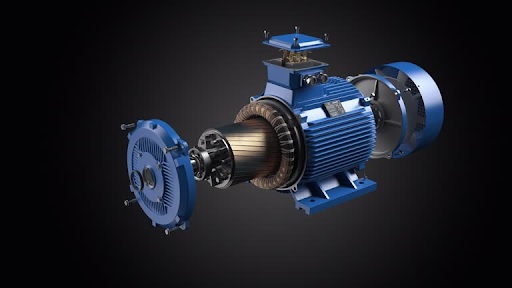In an era defined by innovation and technological advancement, the electrical motor stands out as a crucial component driving progress across various industries. From powering everyday appliances in our homes to driving complex machinery in manufacturing plants, electrical motors play an indispensable role in modern life. Their efficiency, versatility and reliability make them a cornerstone of countless applications, enhancing productivity and improving the quality of our lives. In this article, we will explore the multifaceted benefits of electrical motors, highlighting why they are not just mechanical components but rather the heartbeat of a dynamic industrial landscape.
Understanding Electrical Motors
At its core, an electrical motor is a device that converts electrical energy into mechanical energy through electromagnetic interactions. This transformation is achieved via the principles of electromagnetism, where electric current flows through coils, generating magnetic fields that create motion. There are several types of electrical motors, including AC (alternating current) motors, DC (direct current) motors, stepper motors and servo motors, each tailored for specific applications and operational requirements.
Efficiency That Drives Performance
One of the most compelling advantages of electrical motors is their efficiency. Compared to traditional combustion engines, electrical motors boast significantly higher efficiency rates, often exceeding 90%. This means that more of the electrical energy consumed is transformed into useful mechanical energy, minimizing waste and maximizing output.
This remarkable efficiency translates to lower energy costs for businesses and consumers alike. As global energy prices fluctuate, leveraging electrical motors can be a smart financial decision, allowing for reduced operational costs in both manufacturing processes and everyday applications. Furthermore, as industries increasingly prioritize sustainability, the reduced energy consumption associated with electrical motors contributes to lower carbon footprints, aligning with global efforts to combat climate change.
Versatility Across Applications
The versatility of electrical motors is nothing short of extraordinary. They can be found in a myriad of applications, ranging from small devices like electric toothbrushes and hairdryers to large-scale machinery such as conveyor belts and industrial robots. This adaptability makes electrical motors suitable for virtually any industry, including manufacturing, transportation, healthcare and consumer goods.
For instance, in the automotive sector, electric motors are at the forefront of the transition to electric vehicles (EVs). By replacing internal combustion engines with electric motors, manufacturers are not only reducing emissions but also enhancing vehicle performance. Electric motors offer instantaneous torque, providing smoother acceleration and improved handling, which translates to a superior driving experience. As the demand for eco-friendly transportation continues to rise, electrical motors are paving the way for a more sustainable future.
Reliability and Durability
Reliability is another hallmark of electrical motors. Unlike their combustion counterparts, which have numerous moving parts susceptible to wear and tear, electrical motors have fewer mechanical components, resulting in lower maintenance requirements and longer lifespans. This reliability translates to increased uptime for industrial operations, minimizing downtime and maximizing productivity.
Furthermore, the robust construction of electrical motors enables them to operate efficiently in demanding environments. Whether in extreme temperatures, high humidity or hazardous conditions, electrical motors are designed to withstand a range of challenges, ensuring consistent performance and durability. This resilience is particularly crucial in industries such as mining and oil extraction, where equipment reliability is paramount to safety and operational success.
Noise Reduction for a Quieter World
In a world increasingly focused on creating harmonious environments, electrical motors excel at reducing noise pollution. Traditional combustion engines often generate significant noise, contributing to stress and environmental concerns. In contrast, electrical motors operate quietly, making them ideal for applications where noise reduction is critical, such as in residential areas, hospitals, and office buildings.
The quiet operation of electrical motors not only enhances comfort but also improves safety. In settings like manufacturing plants, where hearing protection may be required, the use of quieter motors allows for better communication among workers, fostering a more efficient and productive atmosphere.
Intelligent Control and Automation
As technology continues to evolve, electrical motors have not been left behind. The advent of smart technologies and automation has transformed the way electrical motors are controlled and utilized. Advanced control systems enable precise regulation of motor speed, torque and direction, allowing for greater flexibility and efficiency in operations.
For example, in manufacturing environments, the integration of electrical motors with automation systems enhances production lines by optimizing workflow and reducing human error. Intelligent control not only boosts productivity but also facilitates real-time monitoring and diagnostics, empowering businesses to make data-driven decisions and minimize operational risks.
Environmental Benefits
In today’s world, the environmental impact of technology cannot be overlooked. Electrical motors are a critical component of the shift toward greener alternatives. Their energy efficiency and low emissions contribute significantly to reducing the carbon footprint of various industries. As organizations strive to meet sustainability goals, the adoption of electrical motors is a strategic choice that aligns with eco-friendly practices.
Moreover, the rise of renewable energy sources such as solar and wind power has further enhanced the appeal of electrical motors. By utilizing clean energy to power electrical motors, industries can significantly reduce their reliance on fossil fuels, paving the way for a more sustainable future. This synergy between electrical motors and renewable energy represents a paradigm shift toward cleaner technologies.
Economic Impact
The economic implications of electrical motors extend beyond individual businesses. By increasing efficiency, reducing energy costs and enhancing productivity, electrical motors contribute to the overall economic growth of a region. Industries that adopt electrical motors often experience lower operating expenses, allowing for reinvestment in innovation and development.
Additionally, the growing demand for electric vehicles and energy-efficient solutions has sparked job creation in sectors such as manufacturing, engineering and technology. As more companies recognize the benefits of electrical motors, they are investing in research and development, further driving economic progress.
Conclusion: Embracing the Future with Electrical Motors
As we navigate the complexities of the modern world, the significance of electrical motors cannot be overstated. Their unparalleled efficiency, versatility, reliability and environmental benefits position them as pivotal players in the quest for sustainable progress. From powering the latest electric vehicles to driving industrial automation, electrical motors are revolutionizing how we approach energy consumption and mechanical motion.
For businesses and consumers alike, embracing electrical motors is not just a smart decision—it is an investment in a more efficient, sustainable and prosperous future. As technology continues to advance, the role of electrical motors will only grow in importance, propelling us into a new era of innovation and possibility.
So, whether you are a business owner looking to optimize operations, a consumer seeking energy-efficient solutions or simply someone passionate about technological advancement, now is the time to explore the boundless opportunities presented by electrical motors. Step into the future, where motion meets innovation and discover how electrical motors can power your world.










